Did You Know That Some Cheetahs Get An Emotional Support Dog?
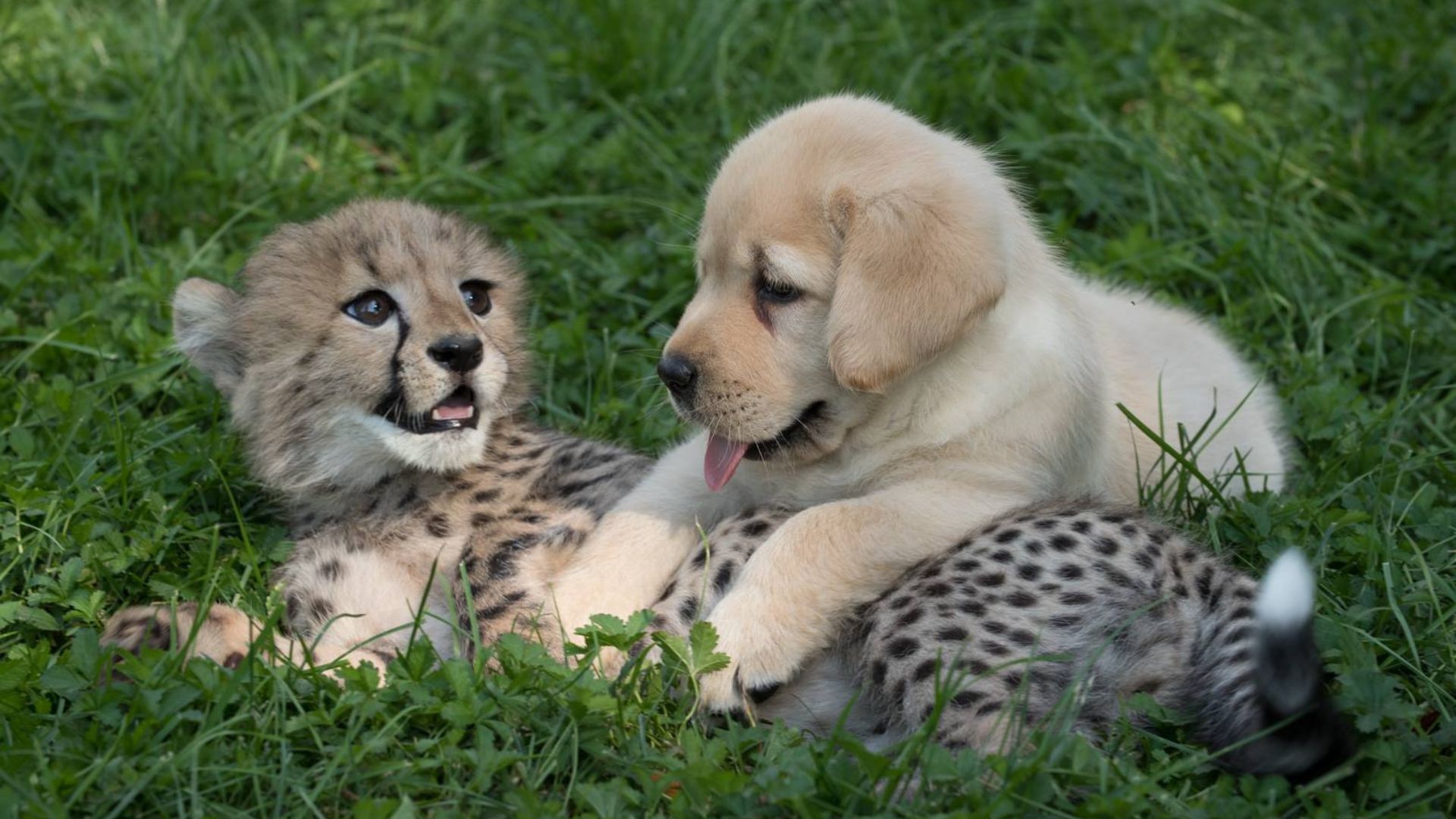
We all recognize cheetahs as stunning wild felines and the fastest land animals. However, did you know that they are also highly sensitive?
These magnificent creatures are surprisingly sensitive, often experiencing stress and anxiety that can hinder their ability to socialize and, consequently, reproduce.
This is particularly concerning given that the cheetah population is dangerously close to extinction.
In an innovative approach to address these challenges, zookeepers across the nation have begun assigning each cheetah its own emotional support dog!
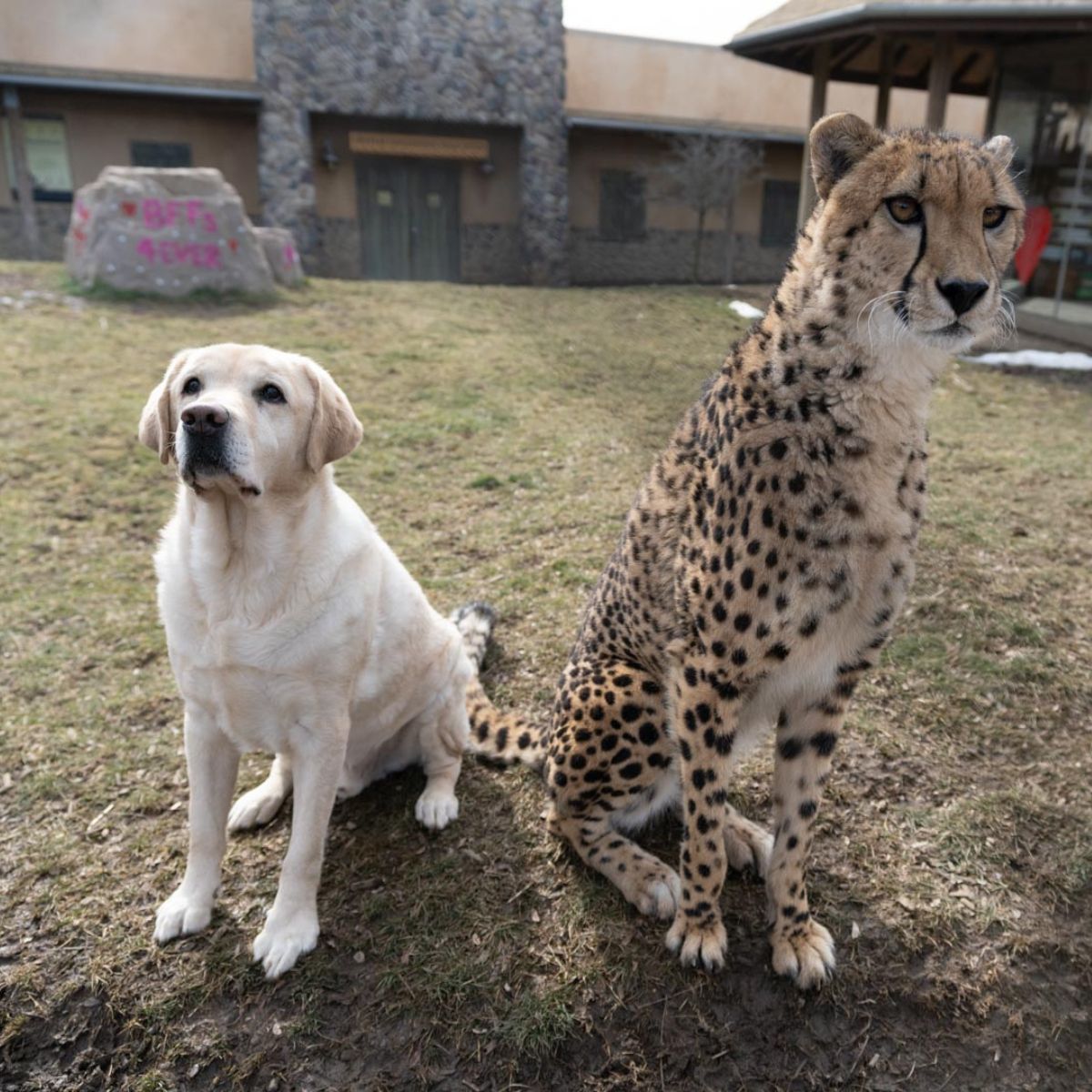
It might sound unconventional to picture a cheetah chilling with a therapy dog, but this unique partnership is a win-win for both parties.
Dogs, known for their calming and comforting presence, have a remarkable soothing effect on those around them, including cheetahs.
To promote healthy socialization skills among cheetahs, zookeepers introduce them to friendly pups when they’re just cubs. This early bonding allows the dog, often taking on the role of the confident leader, to positively influence the cheetah’s behavior.
This companionship is crucial for cheetahs, helping them to develop confidence and social skills.
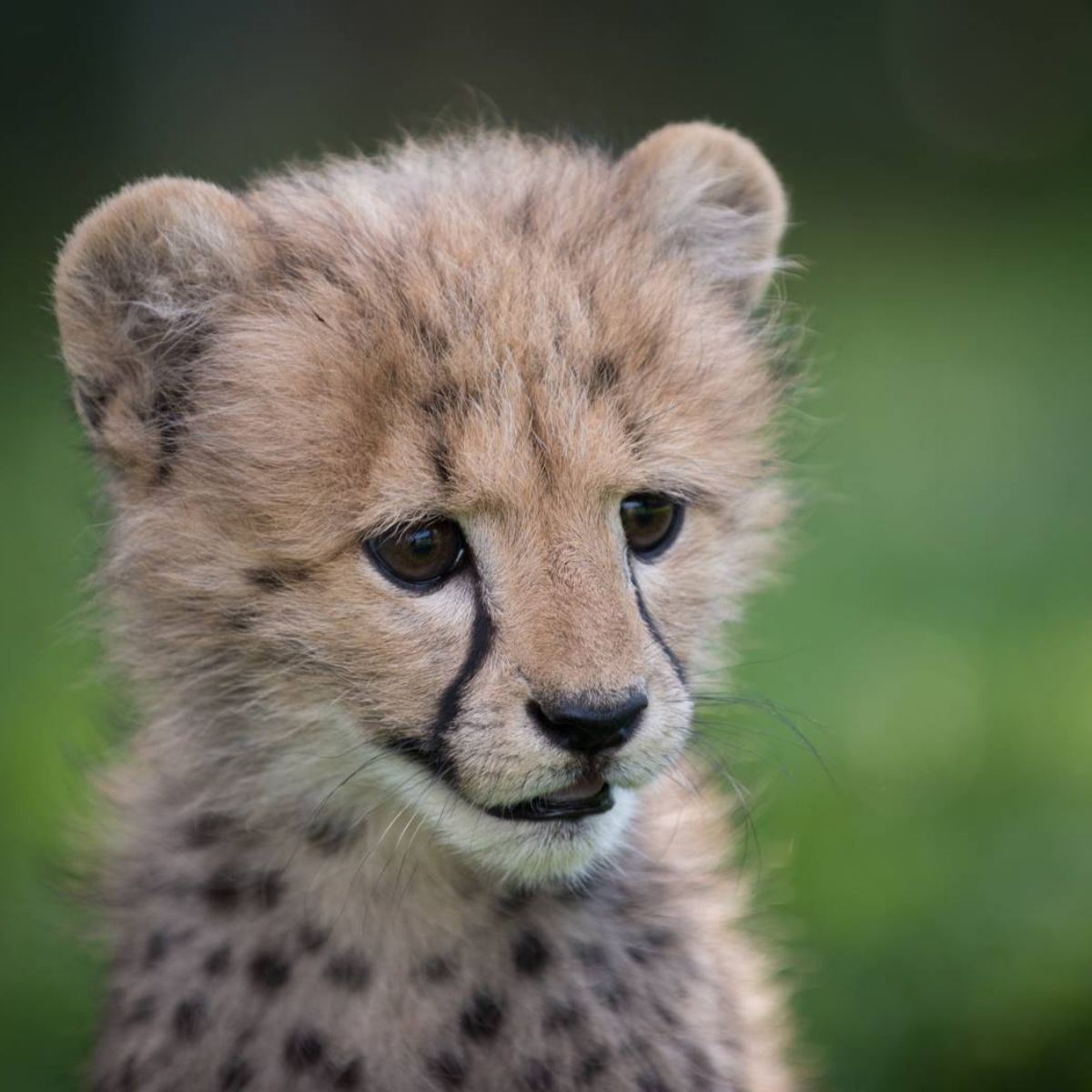
Golden Retrievers and Labradors are typically chosen for this role due to their gentle nature and strong social instincts.
Their interaction with cheetahs not only aids in the big cats’ emotional well-being but also supports their overall health and conservation efforts.
Where Did This Companionship First Started
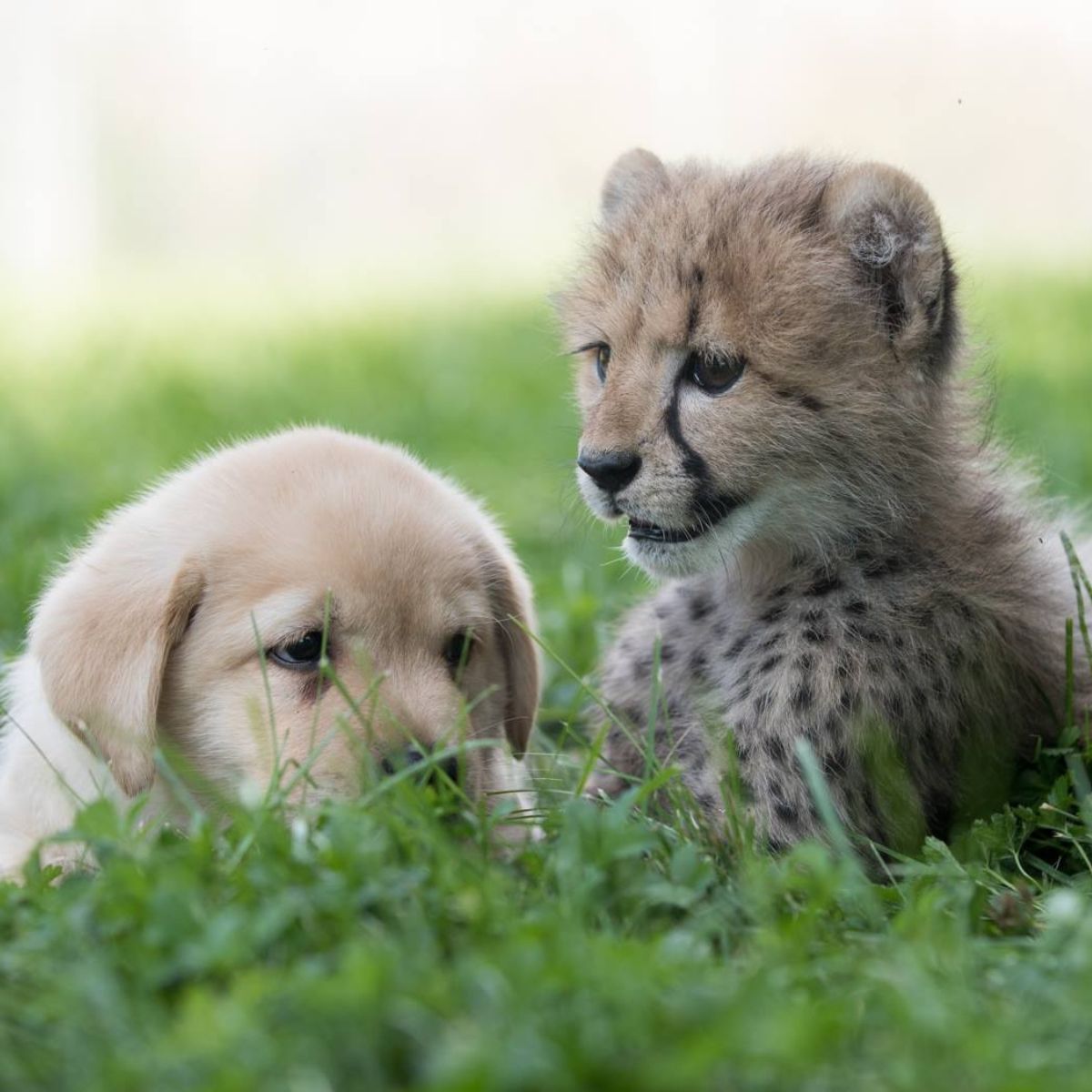
The unique friendship between a cheetah and a dog first blossomed in the small town of Winston, Oregon, back in 1976.
Entrusted with a lone cheetah cub named Khayam as part of a cheetah-breeding program at Wildlife Safari, research scientist and conservation biologist Laurie Marker faced a challenge.
With no siblings for Khayam to socialize with, Marker introduced the cub to a Lab-mix named Shesho, hoping for a positive outcome.
To the delight of everyone involved, the experiment was a success.
This pioneering companionship paved the way for future pairings, demonstrating the incredible potential of cross-species friendships to support conservation efforts and improve the well-being of animals in captivity.
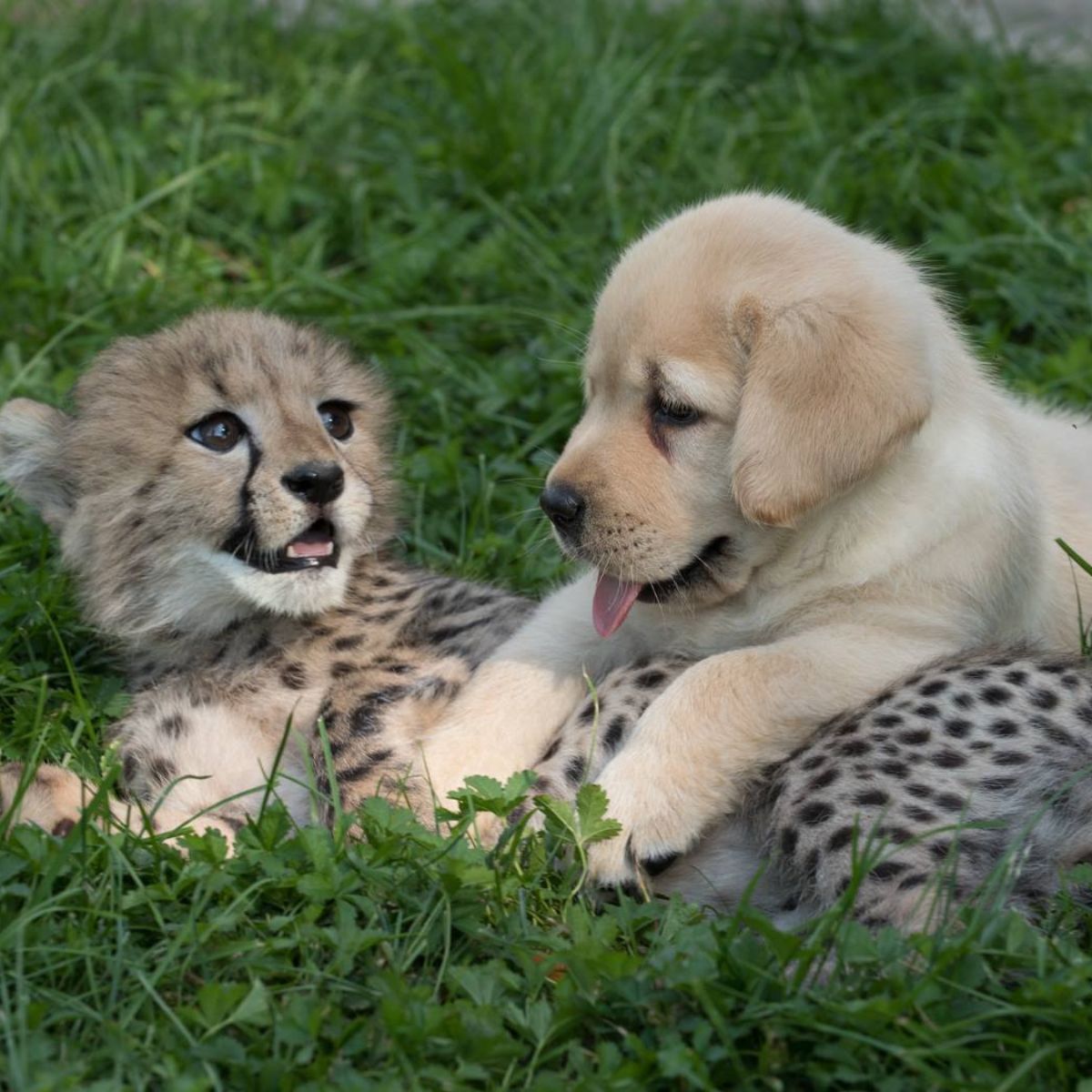
Shesho became more than just a friend to Khayam; he was a source of comfort and security, essential for the cheetah’s happiness and health.
The presence of the dog helped keep Khayam calm, a significant benefit for a species known for its sensitivity to stress.
Marker explained the importance of this relationship, stating.
“Companion dogs act as a surrogate for cheetah siblings. It is the friendship between the two individuals that creates a strong bond, and this is what makes for a successful pairing.”
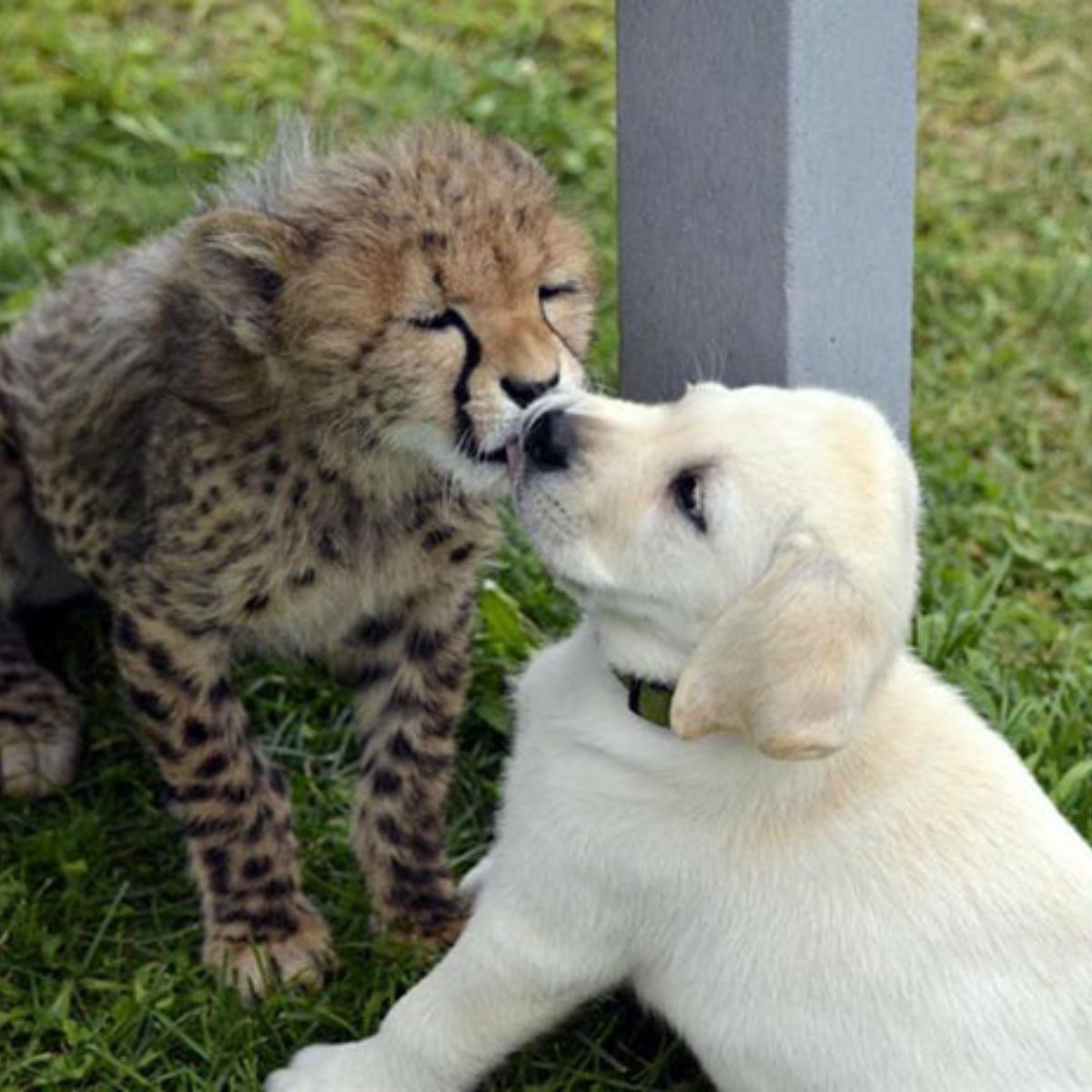
Marker’s recommendation to pair a puppy with a cheetah named Arusha at the San Diego Zoo five years after her first attempt further popularized the idea of companion animals for cheetahs, drawing widespread attention and acclaim.
This innovative approach proved to be groundbreaking in zookeeping practices for cheetahs.
Following the success of Khayam and Shesho and Arusha and her emotional support dog, zoos began to regularly pair solitary cheetahs with emotional support dogs.
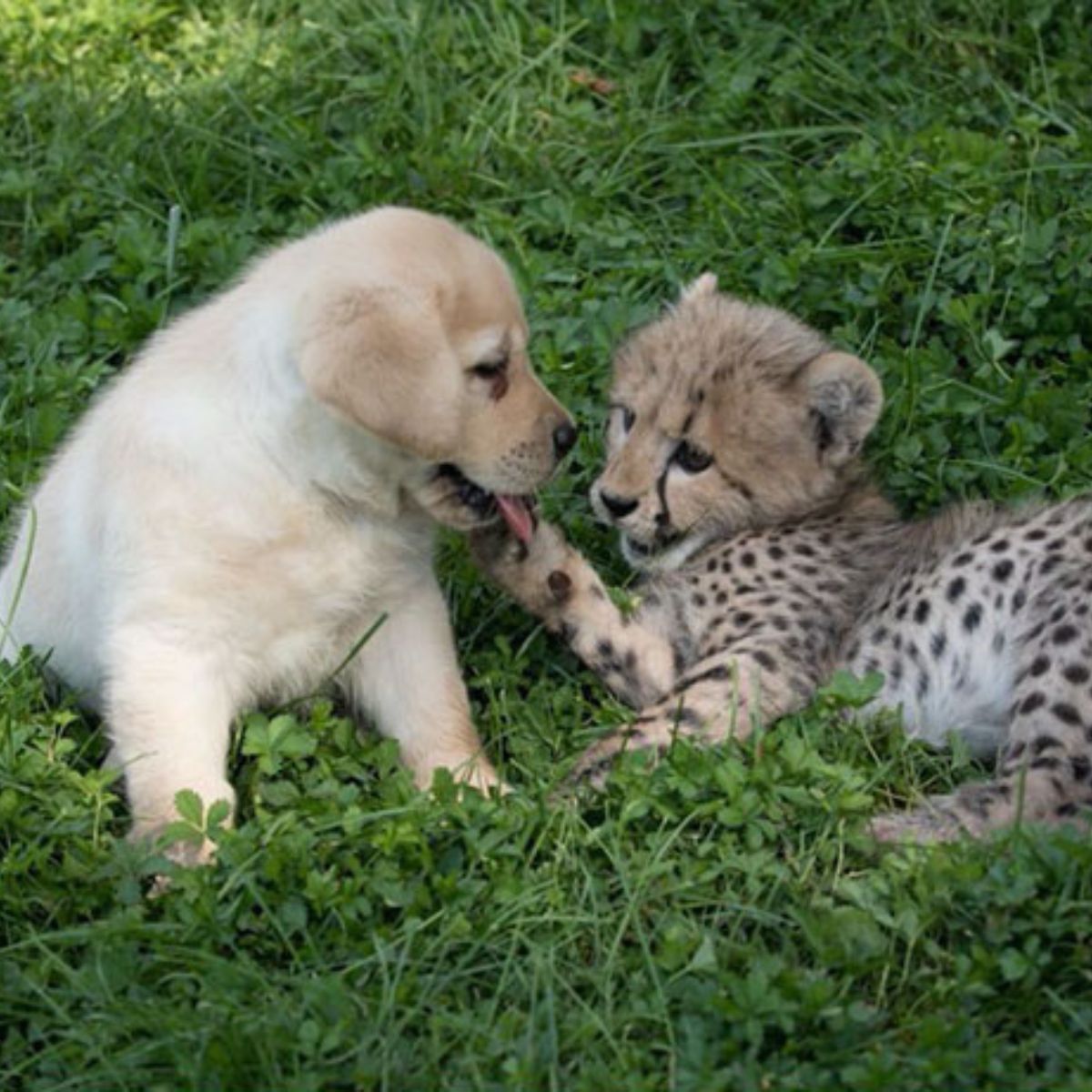
Who would’ve guessed that the world’s fastest land animal and man’s best friend would turn out to be such a perfect match?
I certainly didn’t, but I’m thrilled that these majestic wild cats have found a unique way to thrive with a little help from their canine companions.
Have you heard about this fascinating partnership before? What are your thoughts on it? Drop your comments below – I’d love to hear what you think!






